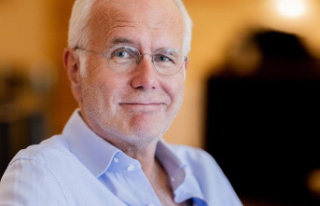Turkey claims a leading role on the road to peace in Syria. But the process falters. With its call for reconciliation on both sides, Ankara is now causing protests among the opposition in the neighboring country.
Syrian government opponents have reacted furiously to a call by the Turkish foreign minister for reconciliation with the government in Damascus. In numerous cities in northern and northwestern Syria, including cities controlled by Turkish soldiers and their allies such as Afrin, Jarablus and Al-Bab, there were calls for protests after Friday prayers. In the Idlib region in the northwest, which is predominantly controlled by Islamist and jihadist militias, protests have been called for on the border with Turkey. The first protests had already taken place during the night.
"We have to somehow reconcile the opposition and the regime in Syria," Foreign Minister Mevlut Cavusoglu said in Ankara the day before. Otherwise there will be "no lasting peace".
The statement seems to indicate a change in the Turkish position. Since civil war broke out in neighboring Syria in 2011, Turkey has expressed its bitter rejection of the government of ruler Bashar al-Assad and has also provided military support to Syrian government opponents, including many Islamist militias. As recently as May, Turkish President Recep Tayyip Erdogan described the Assad regime as "murderous".
If Cavusoglu is concerned with reconciliation with the Syrian government, that is his business, Syrian opposition politician George Sabra wrote in response to Cavusoglu's statement on Facebook. The Syrians were fighting for another cause "for which they have paid and will continue to pay the ultimate price," Sabra continued. Around 500,000 people have been killed in the Syrian civil war since 2011, large parts of the country's infrastructure have been destroyed and millions have been displaced.
Turkey has "played a leading role in maintaining the local ceasefire" and in talks on drafting a new constitution, although there has been no progress on the latter, a spokesman for Turkey's foreign ministry said. This is currently not progressing because Damascus is letting the process slip.
Cavusoglu also said he had a brief meeting with his Syrian counterpart Faisal al-Meqdad in Belgrade in October and that communications between the two countries' intelligence services had resumed. However, the minister rejected direct talks between Erdogan and Assad, although Russia has long been demanding such a dialogue. Damascus receives military support from Moscow in the Syrian conflict.
Cavusoglu also added that Turkey will continue its fight against "terrorism" in Syria. Ankara has been threatening since May that it could attack Kurdish-held areas in northern and northeastern Syria. Turkey has launched several military offensives in northern Syria in recent years.












